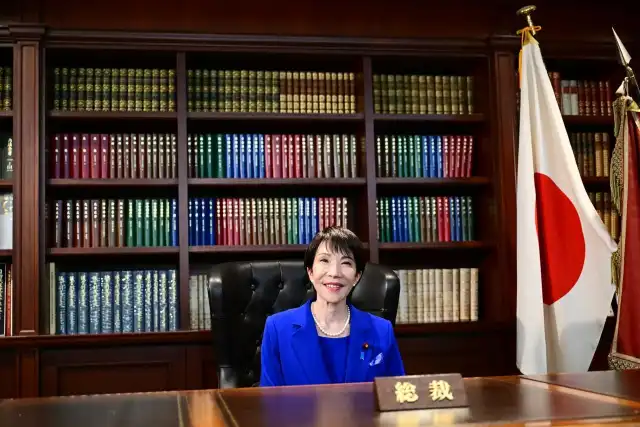Sanae Takaichi, a 64-year-old leader with a nation-first approach, is poised to become Japan’s next Prime Minister. Known for her firm stance on immigration, national security, and Japan’s post-war policies, Takaichi appeals to conservative voters concerned with crime, China’s military presence in the Pacific, and Japan’s role in global conflicts.

Political Rise and Background
Takaichi once played drums in a college heavy metal band, sported pink hair, and raced motorcycles, which she gave up upon entering politics. A follower of the late Prime Minister Shinzo Abe, Takaichi has strong backing within the Liberal Democratic Party (LDP), having been appointed to key party positions during Abe’s tenure.
She looks up to the late British Prime Minister Margaret Thatcher, earning her the nickname Japan’s “Iron Lady.”
Policy Stances and Economic Vision
On the economic front, Takaichi supports monetary easing and increased fiscal spending, continuing the “Abenomics” policies of her mentor. She is willing to challenge the United States on trade deals if they are perceived as unfair to Japan, reflecting her hardline, nation-first approach.
Softened Rhetoric and Voter Appeal
During the latest LDP leadership race, Takaichi moderated her language to present herself as a “moderate conservative”, broadening her appeal beyond hardline voters. Analysts see this as a strategy to regain voters drawn to the nationalist Sanseito party, which has gained popularity with anti-immigration messaging.
Gender Representation and Cabinet Goals
While her election marks a milestone for women in Japanese politics, Takaichi is not considered a feminist candidate. She opposes reforms such as changes to the 19th-century law requiring married couples to share the same surname.
However, she has pledged to improve gender balance in her cabinet to levels seen in Nordic countries, such as Iceland, Finland, and Norway, addressing Japan’s historically low representation of women in government.
Controversies and Regional Reactions
Takaichi is a regular visitor to the Yasukuni Shrine, which honors Japan’s war dead, including convicted war criminals, drawing attention from neighboring countries. Her tough positions on economic security, crime, and foreign influence reinforce her image as a decisive, hardline leader.
